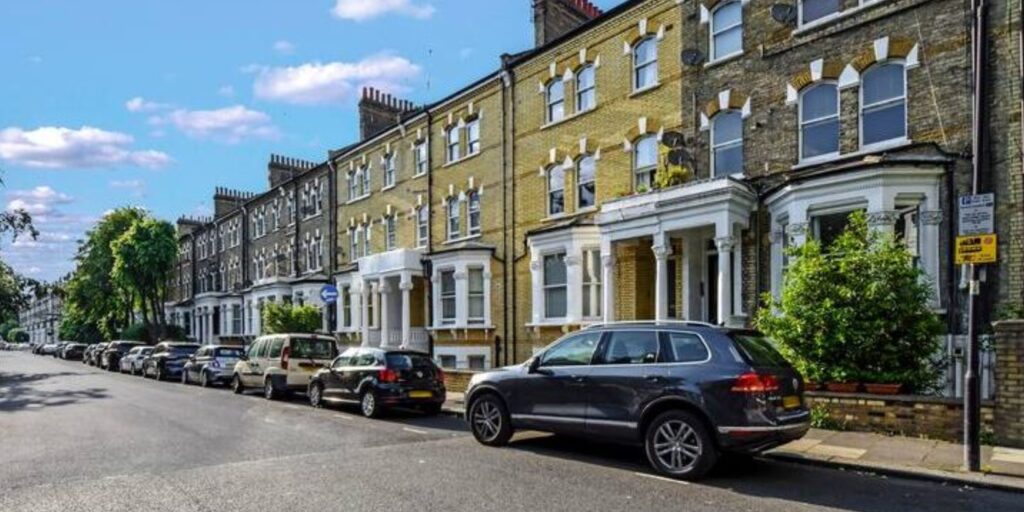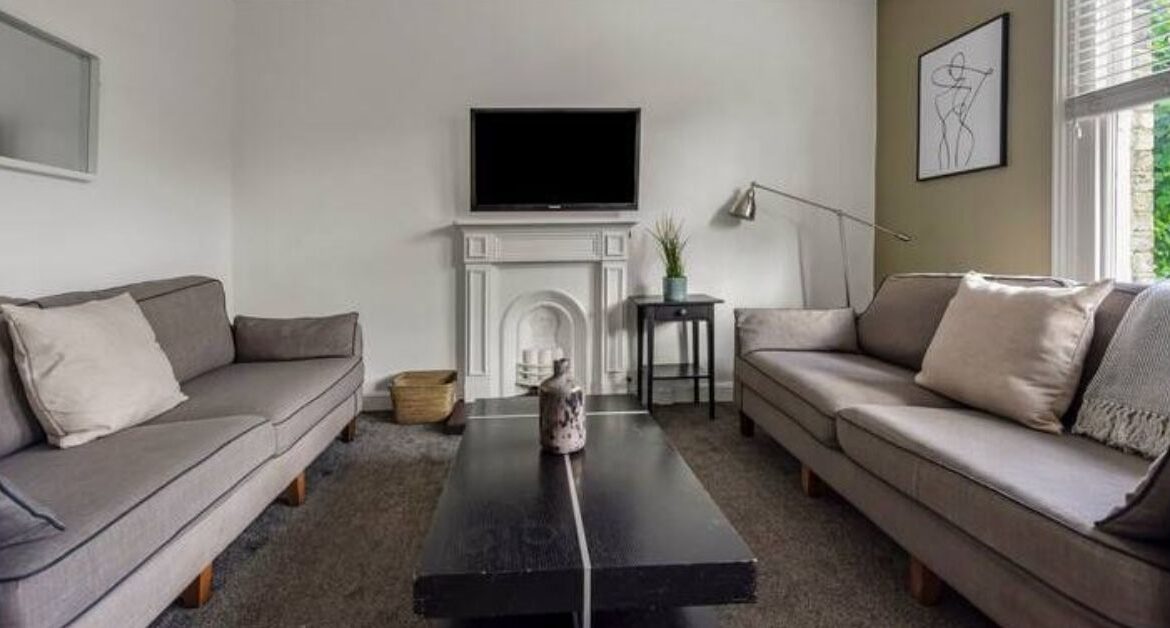How to Choose the Right Monthly Rental in London: A Comprehensive Checklist
Selecting a suitable Monthly Rentals in London can be difficult, especially with many alternatives. There are several aspects to carefully consider when choosing a rental, whether you are moving for employment, college, or just a long visit. With London’s numerous neighborhoods, property sizes, and facilities, it is critical to have a well-defined plan before starting your search. With the help of this exhaustive checklist, you can ensure that the rental you choose fits your needs, lifestyle, and budget.

1.Assess Your Needs
Determining your precise needs for a Short Term Lets London before you begin your search is important. The first thing to do is decide where you want to go. London is a large city with many distinct neighborhoods, each with its own vibe. Knowing where you want to live will help you limit your possibilities, whether you are more into the lively energy of Central London or the more sedate, domestic atmosphere of places like Richmond or Greenwich.
Next, think about the property’s size. Are you searching for a larger house to suit your family, a comfortable studio, or a roomy one-bedroom flat? Rent size directly affects your spending plan and the inventory of homes in the neighborhood of your choice.
Selecting between a furnished or unfurnished rental is an additional crucial consideration. Furnished rentals are a practical option if you want to avoid the effort of buying furniture or are seeking a temporary stay. However, an unfurnished rental can be better if you intend to stay longer and would instead bring your personal possessions.
Finally, list any unique criteria you may have. Do you require proximity to shops, educational institutions, or public transportation? Which kind of property—one with a garden or balcony—would you prefer? By being aware of these requirements, you may concentrate your search on homes that actually fit your lifestyle.
2. Set Your Budget
One of the most crucial things to do when selecting a monthly rental in London is to set a reasonable budget. First, figure out how much rent you can afford each month. The rental market in London can be pricey, so it is critical to understand your financial constraints to prevent taking on more than you can handle.
Consider extra expenses related to renting in addition to the rent. These can include utility expenses, which can build up depending on the size of the home and your usage, and a security deposit, which is usually equal to four to six weeks’ worth of rent. A TV license is required if you want to watch live broadcasts or use BBC iPlayer, and council tax is an additional significant cost that varies depending on the borough and size of the house.
If you feel strapped for cash, think about finding ways to get by. Getting a flatmate, for instance, can drastically lower your electricity and rent expenses. Alternatively, you may choose to make a location compromise by going to a less expensive neighborhood a little bit outside of the city center. Finding a rental that satisfies your needs and stays within your budget requires balancing these criteria.
3. Search Online and Offline
When you have determined your needs and budget, it is time to look for your perfect rental. Online rental websites with many listings throughout London, such as Zoopla and Rightmove, are great places to start. These platforms make it easy to identify rentals that meet your criteria by allowing you to filter properties based on features, size, price, and location.
Using a letting agent can be very advantageous in addition to internet searches. Letting brokers have access to properties that may not be on the internet and can provide insightful information about the rental market. Additionally, they may guide you through the application process to ensure you satisfy the landlord’s requirements and submit all necessary paperwork.
Being ready to move quickly when finding a suitable property is crucial in London’s competitive rental market. Specialized rentals are often reserved in days or even hours, so being able to inspect the property quickly and having your paperwork ready might give you a significant edge.
4. Consider the Location
When selecting a monthly rental in London, location is quite essential. Investigate the area’s safety and reputation first. London is a safe city overall, but specific neighbourhoods are better than others in terms of crime rates, sense of community, and general liveability.
Consider how close it is to your place of employment, schools, and other vital facilities. Selecting a location that cuts down on commute time is smart because commuting in London can be costly and time-consuming. If you use public transit frequently, consider the accessibility and price of routes like the Underground, trains, and buses. Better connections can affect your daily schedule and convenience in certain places more than others.
Consider the accessibility to neighborhood eateries, grocery stores, parks, and medical facilities. These necessities should be conveniently accessible from a well-located rental, improving your quality of life while you are there.
5. Inspect the Property
You must view the property in person before signing any rental agreement. Nothing compares to seeing the property in person to truly get a sense of the area and space, even though online descriptions and photographs can only offer you a broad idea.
Check the property’s condition, including any appliances or furniture included, when you are there. Verify that everything is functioning and keep an eye out for any indications of wear and tear. You may significantly affect your comfort by paying attention to factors such as lighting, heating, and water pressure.
Make sure the property satisfies your requirements and standards. Make sure these are available if you have any unique needs, such as a place for a home office or safe parking. Before moving forward, get clarification from the landlord or letting agent if anything is unclear.
6. Review the Rental Agreement
It is important to thoroughly read the rental agreement as it contains the terms of your tenancy and is a legally enforceable document. Verify that you comprehend all of the terms, including the duration of the lease, the timing of rent payments, and any property restrictions.
You should attempt to work out a deal with the landlord or letting agent if you find any terms uncomfortable. Certain aspects might not be negotiable, but others might be, mainly if the property has been up for sale for some time.
Along with the necessary paperwork, you must present identification, employment evidence, and proof of income. Usually, these records are utilised for credit and background checks to ensure you can fulfill your end-of-the-lease payments.
7. Secure the Rental
It is time to secure the property after you have read the rental agreement and agreed to its provisions. This typically entails paying the first month’s rent and the security deposit. If there are no damages or unpaid rent at the end of the tenancy, the security deposit is held by the landlord or leasing agent and repaid.
Make arrangements to have services like gas, electricity, and water put up in your name if needed. You must set up accounts with the utility companies if the rent does not include utilities. Some rentals include utilities in the rent.
Lastly, get the keys to your new rental and finish any necessary paperwork for moving in. Ensure you know the rules for reporting maintenance problems and who to call in an emergency.
The Bottom Line
Choosing the ideal monthly rental in London needs excellent thought and preparation. You may locate a rental that fits your needs, lifestyle, and budget by evaluating your options, creating a reasonable budget, and doing extensive research on properties. LuxFlat makes locating a convenient and comfortable place to stay simpler by providing a large selection of short-term rentals in some of London’s most sought-after neighborhoods. Whether you are searching for more extended stays or short-term rentals in London, LuxFlat has the perfect option to suit your needs. We can assist you in navigating the rental market and locating the ideal house in London thanks to our in-depth knowledge and broad property portfolio.

